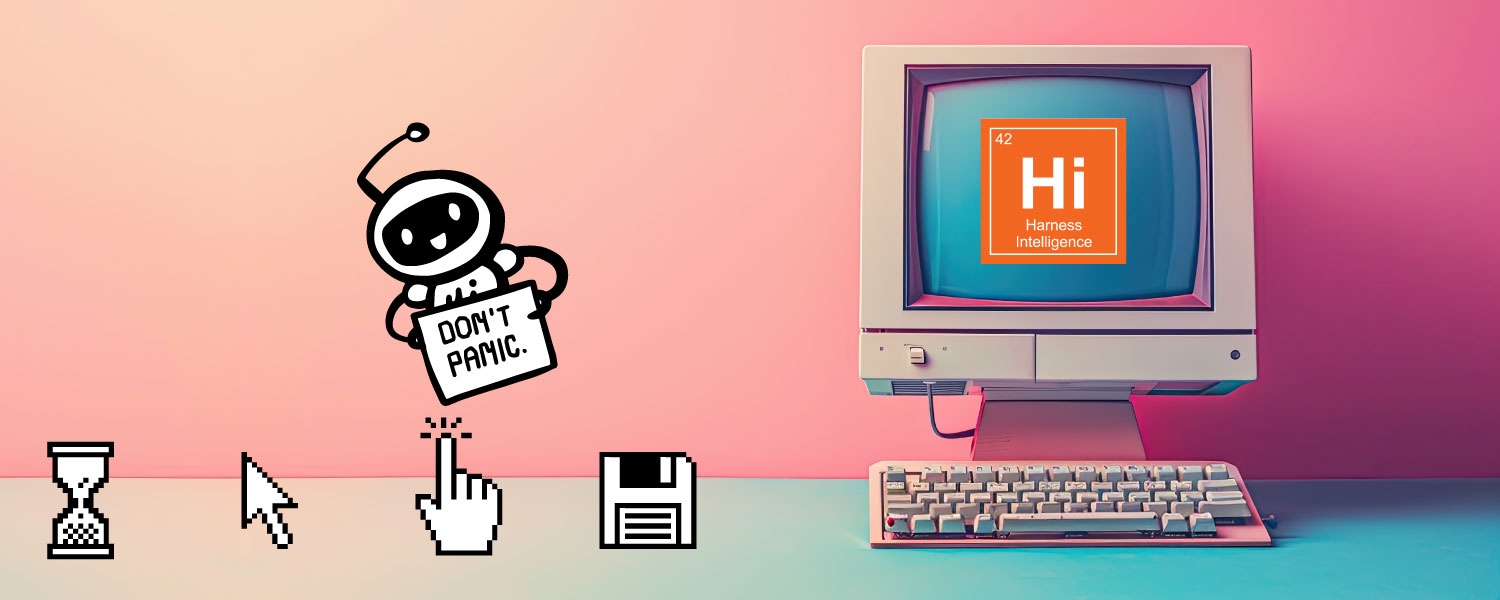
What can we learn about generative AI from the PC revolution?
Change your mindset from one of fear or confusion to one that embraces the potential and power of generative AI and the 7 realms of intelligence you can harness to better contribute and lead in your role at your organization. Access a replay from our recent flyover of Harness Intelligence: The Core Experience.
Richard Hodge, our partner and co-founder of the new generative AI learning organization Harness Intelligence (Hi), has lived through many technology revolutions. He shares 3 key lessons from the PC transformation that can help us with our AI adoption challenges and opportunities.
Remember when personal computers came in with a promise to change the world, and they DID? What lessons can we apply to the adoption of generative AI?
Lesson 1: Early adoption and competitive advantage
When PCs were first introduced, businesses that adopted them early gained a significant competitive edge. For instance, a study by the Harvard Business Review found that early adopters of PCs saw a 5-10% increase in productivity compared to their competitors.
Similarly, organizations that embrace generative AI early will likely outpace their competitors by leveraging AI to automate routine tasks, generate insights from vast data sets, and foster creativity in product development.
Lesson 2: User training and skill development
A key challenge during the PC revolution was the need for user training and skill development. Companies that invested in training their employees to use PCs effectively saw higher productivity and better outcomes. A McKinsey report highlights that businesses investing in digital skill development saw a 20% improvement in operational efficiency.
The same applies to generative AI. Investing in comprehensive training programs ensures that employees can utilize AI tools effectively, unlocking their full potential and minimizing resistance to change.
Lesson 3: Integration with existing systems
Another critical aspect of PC adoption was the seamless integration with existing business processes and systems. Companies that succeeded in this integration saw smoother transitions and greater benefits. For example, IBM's early integration of PCs with its mainframe systems allowed it to streamline operations and enhance data processing capabilities, setting a benchmark for others to follow.
For generative AI, integration with current workflows and systems is crucial. AI tools should complement and enhance existing processes, not disrupt them.
How Hi can help
Hi understands the complexities involved in adopting new technologies like generative AI. Their programs are designed to provide comprehensive discovery-based training, ensuring that your team is well-equipped to harness the power of AI. They focus on helping you identify and implement the best use cases for your business using all the intelligence domains available. By fostering a growth mindset and providing hands-on experience, Hi enables you to transition from learning to doing, unlocking the full potential of generative AI to drive innovation and competitive advantage.
Contact us to talk to your Advantage partner to learn how to bring an Hi experiential AI learning workshop to your organization.
- HR’s new frontier: Driving AI skills and innovation across the organization - September 16, 2024
- Do you know who the ‘hidden users’ of AI are in your company? - August 14, 2024
- What can we learn about generative AI from the PC revolution? - June 21, 2024
